Europeans Say Iran Deal Could Collapse On Russian Demands
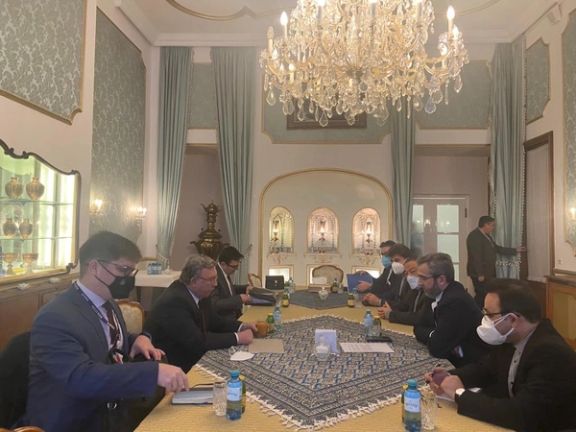
France, Britain and Germany warned Russia Saturday that its demands to have its trade guaranteed with Iran risked the collapse of an almost-completed nuclear deal.

France, Britain and Germany warned Russia Saturday that its demands to have its trade guaranteed with Iran risked the collapse of an almost-completed nuclear deal.
Negotiators have reached the final stages to restore the so-called JCPOA deal, which lifted sanctions on Iran in return for curbs on its nuclear program, long seen by the West as a cover for developing atomic bombs.
However, on March 5 Russian Foreign Minister Sergei Lavrov unexpectedly demanded sweeping guarantees that Russian trade with Iran would not be affected by sanctions imposed on Moscow over its invasion of Ukraine.
"Nobody should seek to exploit JCPOA negotiations to obtain assurances that are separate to the JCPOA," France, Britain and Germany - the so-called E3 European parties to the 2015 accord - said in a joint statement. "This risks the collapse of the deal," they said.
The deal on the table should be concluded with the utmost urgency, they added.
Washington has already insisted it will not agree to Russia's demands.
The 11-month-old international talks seek to bring Iran back into compliance with the deal's restrictions on its rapidly advancing nuclear activities and bring the United States back into the accord it left in 2018 under former President Donald Trump.
Oil markets are closely watching the progress of talks to see whether restrictions on Iranian crude exports might be lifted, which could help to offset disruption to supplies from Russia's war in Ukraine.
Report by Reuters
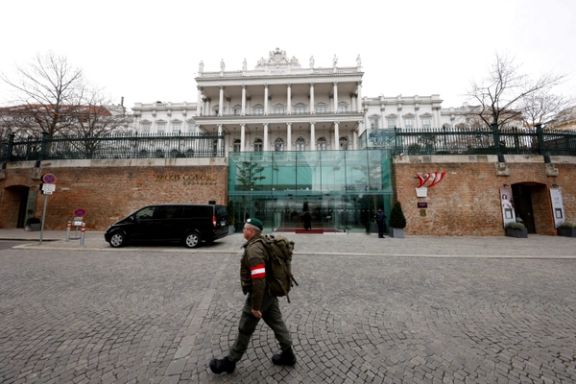
Hardliners in Tehran are coyly beginning to acknowledge that Moscow has a role in the abrupt halt to the Vienna nuclear talks by presenting its own demands.
So far Iranian officials have refrained from openly acknowledging that the pause in the talks announced by EU on Friday has anything to do with Moscow's demand to receive exemption from Western sanctions on Ukraine in relation to its ties with Iran. They have continued to blame the US for not reaching an agreement which last week appeared to be very close at hand.
In an interview with pro-Iran Al-Mayadeen television Friday, the media advisor of the Iranian negotiation team, Mohammad Marandi, said no definite date has been set for a return to the talks. Marandi avoided saying whether Iran backs Moscow's demands and accused the US and European powers of not being prepared to lift the sanctions on Iran.
"Moscow wants guarantees from the US and other Western countries, not Iran," he said.
But some hardliner media and a website affiliated to the Secretary of Iran's Supreme National Security Council Ali Shamkhani on Saturday offered hints of Tehran's frustration with Moscow seeking a loophole through which it can escape sanctions pressure.
An unattributed commentary in Javan newspaper which is linked to the Revolutionary Guards on Saturday said, "nobody is officially saying what differences caused the halt in the talks" but added that "one can presume that the biggest challenges now are caused by Russia and the US unlike the previous times when they were posed by Iran."
Javan commentary reiterated that the inflexibility of the United States poses the biggest challenge to a deal but said the "Russia's demand for guarantees for future trade and military relations with Iran after a possible deal, a position which Iran does not strongly oppose, forms part of the differences."
Nour News website which is believed to be Ali Shamkhani's mouthpiece in another unattributed commentary Saturday entitled "America's Sleight With Tools Exceeding Negotiations" also pointed the finger at the US for stalling the talks by refusing to accept Iran's demands and acknowledged Moscow's demand as "a new issue and unpredicted factor" in the talks, but said Iran "backs Moscow's approach".
Unlike Javan, the Nour News commentary claimed in clear terms that Tehran "backs Moscow's approach" and argued that saying negotiations have ended and a final text has been prepared, as European negotiators say, was "a wrong surmise".
Nour News accused the Western parties in the talks of emphasizing and attributing the difficulties in the talks to Russia's new demand for guarantees, to avoid accepting Iran's own demands.
"Although the Russian request can introduce a new agenda to the negotiation table as a new issue and an unpredicted factor, the main hitch in the talks which results from a lack of political decision by the US to respond to Iran's demands has remained unresolved. Therefore, one can't speak about Russia's request as an obstacle that prevents an agreement," Nour News said.
In Tehran some reformist media which accuse Moscow of taking the Iran deal hostage to their own interests have even accused Moscow of throwing an obstacle in the path of an agreement in coordination with Tehran's archenemy, Israel.
"The war [in Ukraine] showed that there is a marked synchronization between Israel and the Kremlin in all dimensions and this cooperation even includes Israel's concerns over a nuclear agreement with Iran in Vienna," a commentary in reformist Etemad newspaper said Saturday and asked if there could be a connection between the Israeli Prime Minster Naphtali Bennet's recent visit to Moscow and the abrupt pause in the talks.
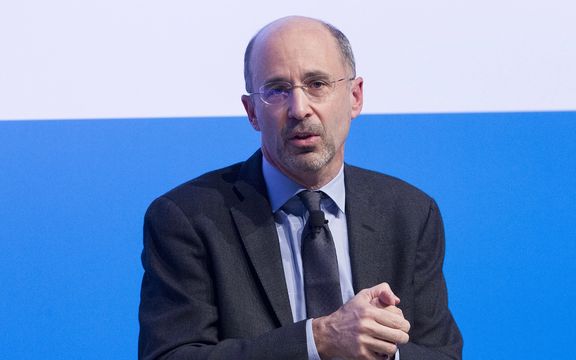
The State Department Friday said US negotiator Robert Malley and his team have returned to Washington after negotiations to reach an Iran nuclear deal paused.
After 11 months of multilateral talks in Vienna diplomats have been insisting that a deal was at hand to revive the 2015 Iran nuclear agreement known as JCPOA, before Russia made last-minute demands on Saturday.
Moscow has asked for exemption from Ukraine sanctions in its economic and other relations with Iran. The US and its European allies have dismissed Russia's demand, saying sanctions imposed over the Ukraine invasion are not related to the Iran nuclear deal.
State Department spokesperson Ned Price also told reporters the United States continues to believe that a potential deal to return to the Iran nuclear agreement is close, but said decisions need to made in places like Tehran and Moscow.
Iran has been downplaying the Russian demand, claiming that Washington has not made its final decisions over the nuclear deal and has presented new demands.
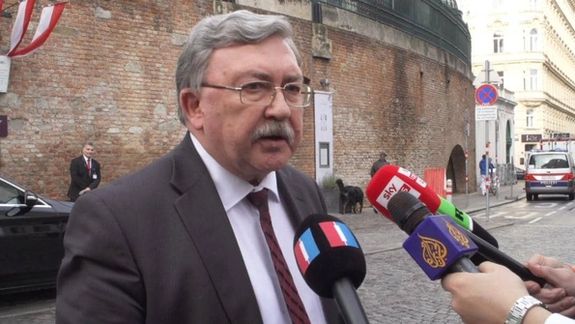
European powers reportedly refuse to exempt Moscow's trade with Tehran from sanctions over Ukraine, while the talks to revive the Iran nuclear deal have paused.
As the negotiations with Iran in Vienna paused on Friday, an E3 diplomat told Reuters that there will be no negotiation on a broad exemption for Russia about the trade guarantees it has requested for Iran, adding that world powers would need to look at other options if Moscow continued to block the process of the talks to restore the deal, Joint Comprehensive Plan of Action (JCPOA).
The diplomat accused Russia of taking the talks for restoring the JCPOA hostage and said there was “critical urgency” to conclude the deal as further external factors could also threaten it.
The US State Department told reporters Friday that its chief negotiator Rob Malley has returned to Washington for consultations as the Vienna talks have paused and decisions must be made in Tehran and Moscow.
The French and British envoys to the Vienna talks also said that the indefinite pause in the talks announced by European Union's Foreign Policy Chief Josep Borrel earlier on Friday were deeply disappointing. "External factors", presumably Russian demands for sanctions exemptions, that have held up the Iran nuclear talks must be resolved within days to prevent the process from collapsing. Details of Russian demands have not been disclosed yet.
"Fair and comprehensive deal on table - ready for conclusion. External factors must be resolved in next few days or agreement likely to unravel," the British envoy to the talks, Stephanie al-Qaq, wrote on Twitter.
The French envoy to the talks, Philippe Errera, also said in a tweet that a "good deal" was on the table and warned that there was a critical urgency to conclude a deal and a risk that failing that, the agreement would fall apart.
However, quoting a "source close to the Iranian negotiation team, Iran's official news agency, IRNA, claimed again that it was Washington that had caused a delay in finalizing the agreement by "indecision and making new demands". IRNA did not say what were Washington’s new demands.
"Meanwhile, there are also some issues such as the problems between Russia and the US that are irrelevant to the talks between Iran and 4+1 countries (France, Britain, Russia, China, and Germany) and Washington and Moscow must resolve among themselves," the source was quoted by IRNA as saying.
A deal without Russia, although theoretically possible, would further complicate the matters as Russia is the only world power cooperating with Iran on its nuclear projects including the building of nuclear power plants.
Russia also played a major role in the implementation of the JCPOA by taking the 3.67 percent uranium that Iran enriched beyond the 300 kg allowed by the 2015 agreement before Iran stopped shipping out enriched uranium in retaliation for US sanctions. Even if Iran the US talk directly, finding an alternative to fulfill Russia's role in the original JCPOA would not be easy or quick.
Sanctions over Ukraine and the ban on Russian oil imports by the US, Canada, and some other Western countries, including Japan, have driven oil prices to record highs in over a decade. Moscow is keen to keep the oil prices high but is not happy to surrender its share of the market to Tehran if an agreement in Vienna lifts the US sanctions imposed on Iranian crude oil sales in 2018.
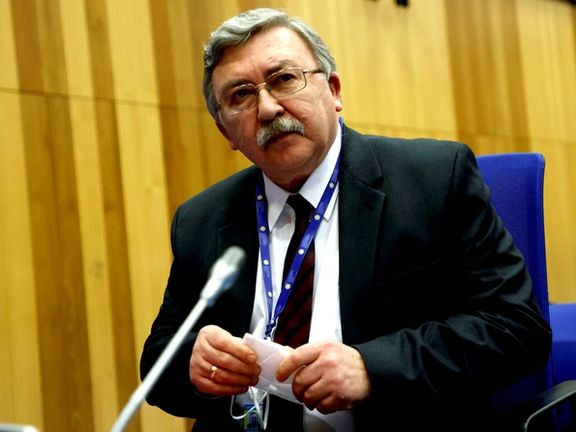
Following a pause in Iran nuclear talks, Russia’s lead envoy said negotiations will continue with all delegations during the pause to settle remaining issues.
Speaking to reporters at the venue of the negotiations in Vienna on Friday, Mikhail Ulyanov said he is not aware of the pause called by EU Foreign Policy chief Josep Borrell, presumably over Moscow’s demands, adding, “I’m not aware of any impasse. Break? The Europeans left Vienna a week ago.”
He implicitly rejected the idea that the reason behind the pause is Russia’s demands for a US guarantee that its ties with Iran should be exempted from Western sanctions imposed for the invasion of Ukraine, stating, “The conclusion of the deal doesn’t depend on Russia only”.
Calls for a pause in Iran's nuclear talks gathered momentum as both Tehran and the European Union hinted at a temporary break, with Borrell saying that a draft text is "essentially ready", but hampered by "external factors".
"As coordinator, I will, with my team, continue to be in touch with all JCPOA participants and the US to overcome the current situation and to close the agreement", Borrell said on his Twitter account.
Iran's foreign ministry spokesman Saeed Khatibzadeh shortly after Borrell's statement tweeted that a pause in the negotiations "could be a momentum for resolving any remaining issue and a final return."
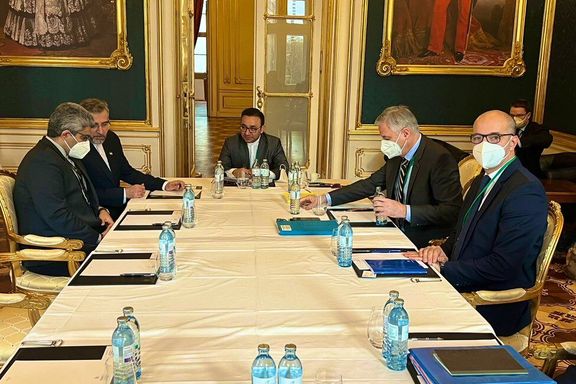
EU Foreign Policy chief Josep Borrell Friday called for a pause in Iran nuclear talks, saying that a draft text is "essentially ready", but hampered by "external factors".
Apparently referring to Moscow's demands to be exempted from sanctions over its invasion of Ukraine in its dealing with Iran, in a tweet Friday morning Borrell said a pause in Vienna talks is needed due to "external factors". He added that a "final text" to revive the deal, Joint Comprehensive Plan of Action (JCPOA), is "essentially ready and on the table."
"As coordinator, I will, with my team, continue to be in touch with all JCPOA participants and the US to overcome the current situation and to close the agreement," Borrell said.
Iran's foreign ministry spokesman Saeed Khatibzadeh shortly after Borrell's statement nodded agreement, tweeting that a pause in the negotiations "could be a momentum for resolving any remaining issue and a final return."
On Thursday the Politico said two diplomats have said that the talks in Vienna were on the precipice of collapse over last-minute Russian demands for exemption from sanctions.
Iran's official news agency IRNA Friday morning said "informed sources" have not confirmed the collapse of the Vienna talks, without mentioning the politico report. It also made no mention of Russian demands, blaming the US for delaying an agreement.
Iranian Foreign Minister Hossein Amir-Abdollahian also told Borrell in a phone call Thursday evening that the US is sending "mixed messages" to Iran and delaying the restoration of the JCPOA by introducing "new and unjustified but again did not make any mention of Moscow's demands.
He also insisted that Iran's demand for the lifting of sanctions on "[Iran's] national heroes", presumably the Revolutionary Guards (IRGC), was "non-negotiable". The former US administration designated the IRGC as a Foreign Terrorist Organization (FTO).
"No single party can determine end result; a joint endeavor is needed. Reason should prevail," the Iranian foreign minister tweeted after his phone call with Borrell, reiterating that a "good and durable agreement" was within reach if "the US acts realistically and consistently."
On Friday morning former Central Bank of Iran Governor Abdolnaser Hemmati in a tweet urged all Iranian official to support a quick deal with the US directly. "A hundred days ago I told [them] not to miss the opportunity for economic growth by 'negotiating with five different mediums [each with its own] interests'," he wrote, adding: "With the current oil prices the cost of delay in increasing crude oil exports is $4b [a month]."
A restored JCPOA would theoretically bring back Iranian fossil fuel to world markets but the energy infrastructures, both gas and oil, have been left in relative neglect in the past few years, particularly after the 2018 sanctions and it will take time, even years in the case of gas, to boost production.
The US State Department Spokesman Ned Price told reporters Thursday that a nuclear deal with Iran is "down to a small number of outstanding issues" which are nevertheless "among the most difficult ones" and stressed that Washington has urged all parties, including Russia, to focus on solving the final remaining issues.
However, he stressed that the "new Russia-related sanctions are wholly unrelated to the JCPOA" and Washington has "no intention of offering Russia anything new or specific" as it relates to the sanctions imposed for the invasion of Ukraine. "I will let the Russian Federation speak to what it is that they are seeking," he said.